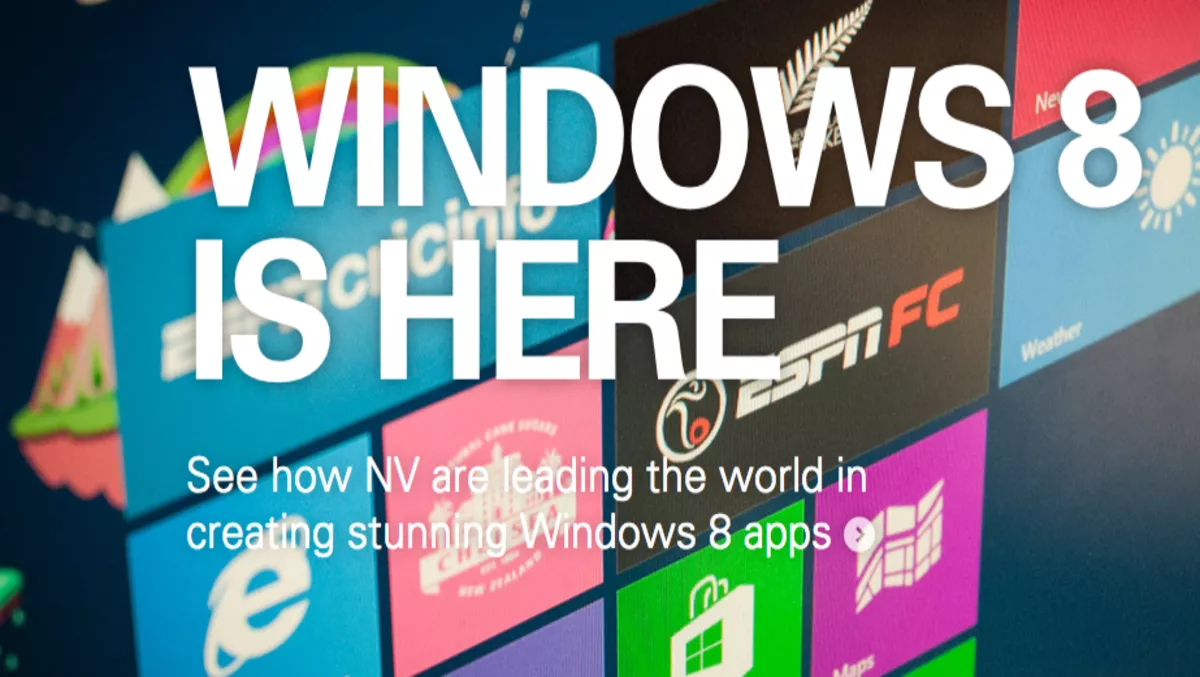
Windows 8: Advantages for developers, but…
With the release of Windows 8, Microsoft is hitting the road big time to get developers on board to populate it’s as-of-now still sparsely-populated Windows Marketplace app store.
Exact numbers of apps available are not clear, but in his recent visit to New Zealand, Microsoft international president Jean-Phillippe Courtois made the entirely valid point that it is quality, and not quantity, which is really important.
We agree wholeheartedly; of the hundreds of thousands of apps now available on Google’s Play and Apple’s App Store, perhaps 80% are ‘crapware’.
Be that as it may, 20% of 100 000 apps is still 20 000 good apps - around three times as many as the total you’re likely to find on Windows Marketplace (despite the quality/quantity argument advanced by Courtois, numbers do apparently matter).
That, then, explains why a man of Courtois’ stature is on the road, meeting developers around the world. Locally, some 1100 are on board with Microsoft.
Now, to the advantages of developing for Windows 8: it’s a great time to get in early and take advantage of a platform which will reach millions of potential customers, as we’ve noted here. Additionally, developers will enjoy the advantage of programming in a familiar environment, Visual Studio (which is pretty well-regarded) using familiar programming languages (C#, C++ etc).
There is another advantage, too, which became clear from one of the developers introduced to the press along with Courtois: Matt Pickering, MD of NV Interactive, says his company isn’t really an app development house at all, but rather a web developer. “But when we programme websites for Windows 8, we can produce apps at the same time, with little additional work.”
Finally, the developers that Microsoft put in the room with the press, most of whom develop for other platforms agree that it is evidently a relatively simple process to port apps from iOS and Android to Windows 8. Be that as it may, this does not appear to be happening en masse as yet.
Pluses come with minuses
Sounds awesome, and in many respects it is. But…
The Windows Marketplace has anywhere between 4,000 and 8,000 apps on it right now. While Courtois made the observation, “The Windows Marketplace had more apps on launch day than any other”, this takes nothing away from the fact that Microsoft is behind. Way behind. Early reviews of the Surface are practically unanimous on the limitations of a device which lacks app inventory.
More than that, an enormous amount of faith is being placed in an operating system which may or may not appeal to the masses.
In terms of mobility, much hope is vested in Windows Phone 8; the previous iterations of Windows Phone are orphaned with this release - regardless, the platform ‘commands’ a mere 2% of the smartphone market, largely on the back of Nokia’s Lumia.
While new hardware partners, among them Samsung and HTC, are coming on board with 8, Nokia with Windows Phone only went in one direction, and it wasn’t forward.
Down to business
While the consumer market will open up for developers (Marker Metro’s Keith Patton describes Windows 8 as a ‘once in a decade opportunity for developers’) as a simple consequence of how Microsoft OEMs sell new hardware to consumers, the real test of the operating system will come from the corporate world.
What that boils down to is this: are there compelling reasons to upgrade to 8?
Courtois observes that there are 1,3 billion Windows devices around the world, some 670 million of which are ‘addressable for Windows 8’. In the first 4 days of its release, some 4 million of those devices were upgraded (presumably by their owners).
As an absolute number, 4 million sounds like a lot. As a relative number, it is not; it’s a teeny, tiny drop in the ocean. What’s more, Courtois shared this tidbit on the 15th of November; the first 4 days following the release of the operating system were 26-30 October. One wonders why a more recent figure was not shared.
But what will compel businesses to consider an upgrade? That will come down to whether or not Windows 8 can deliver demonstrable advantages over the widely respected Windows 7.
While 8 does appear to show some performance gains on ‘lesser’ hardware, it throws up challenges in terms of useability and the necessity for change management. Furthermore, the corporate adoption of the new operating system to some extent will depend on the availability of ‘compelling devices’.
The real question, ultimately, is whether or not Windows 8 has what it takes to limit what may be an inexorable drift towards the post-PC era.

